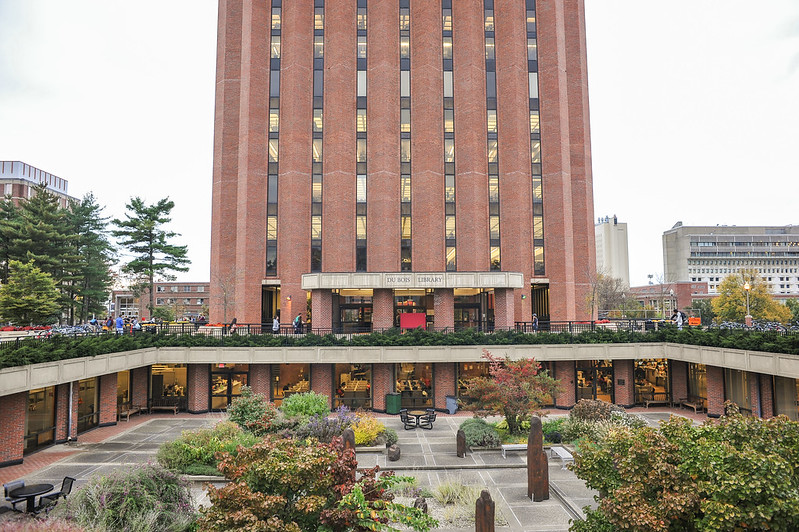On Tuesday, Oct. 8, Crotty Hall hosted the workshop “Developmental Dilemmas: The Role of Power and Agency.” The talk was given by William Ferguson, a professor of economics at Grinnell College.
Ferguson opened the workshop focusing on how regional power impacts inequalities and people’s prospects. Discussing the presence of vast inequities in worldwide economic development, he spoke on how political settlements impacted developmental challenges and the inherent classification of society into certain divisions that occurs today.
First, Ferguson discussed the concept of “collective-action problems,” distinguishing between their two orders. First order problems revolve around free-riding and social issues, and how they affect public welfare. Second-order problems involve issues that cannot be solved with the same solutions that solve first-order problems, and thus require governmental implementation.
He then defined power in an economic context as the ability to either bear influence on certain parties or at least precipitate a change in their thinking. He stated that power depended greatly on a party’s access to resources as well as the way it could solve collective-action problems.
Ferguson next introduced a theory on political settlements analysis, developed by Tim Kelsall. The theory is based on the spectrum of how power is distributed and on the proportion of individuals that can be considered powerful. Settlements can either be broad and multipolar, broad and unipolar, narrow and multipolar or narrow and unipolar. Ferguson discussed broad settlements that were beneficial, such as those that aided the development of South Korea between 1955 and 1987, and most of Uganda from 1986 until 2001.
While narrower settlements sometimes are seen in developmental stages of countries, they are also seen in dictatorships, as Ferguson explained the concept of the “limited dictator,” introduced by Armando Razo. The “limited dictator” tends to struggle with policy implementation due to a lack of institutional limits on how to provide protection, rather than how democratic leaders have the singular choice of providing protection for all or no protection for anybody.
Ferguson cited two key factors that involve regional divisions of power: the way resources were divided and ethnicity. Ferguson described how ethnicity revolves around social identity and political uncertainty. It impacts the opportunities available to people, including wealth, power and social standing.
Citing Indian economist Amartya Sen, Ferguson mentioned the importance of “plural” social identities, which contradict more “singular” identities, which could contribute to misrepresentation. He then concluded his remarks by establishing that regional disparities in development were inherently linked to the unequal distribution of power and privilege, and explained how ethnicity was key to understanding the interests of people in resource distribution.
Ferguson explained that development must focus on all individuals regardless of how much power they have, rather than being tilted too much in the favor of the very powerful, further arguing that different parts of the world require different keys to development.
“There is no single prescription for [economic development] everywhere in the world,” Ferguson said. “So… you have to go into the specific localities and think about what, really, are the conditions on the ground there…What’s the distribution of power? What’s its relationship to the distribution of wealth, and what’s its relationship to the…key concepts that people understand and use – so there’s gender, ethnicity, so on and so forth…A more broad distribution of power is going to tend to be better than a narrow distribution of power, where only a few folks have a lot of power.”
Ferguson also cited Sen when defining development. “Development means broad-spread improvement of human capabilities. Now, if you define it that way, and if you take seriously the notion that it needs to be broadly spread, then…development is going to improve the wellbeing of the less powerful, in addition to everybody else,” he said.
Economics Professor Jayati Ghosh, who hosted Ferguson, cited the importance of learning about economic development, and not only for students of economics.
“I would say that this lecture is really important because we do not talk about power enough, Ghosh said. “In a lot of the economics that is taught in general, we ignore power. We look at markets and if everybody’s an equal player; we look at how to make a level playing field – [but] we don’t talk about how relations are already molded by unequal power, whether it is across countries or… classes or groups, and that’s very important. So, I think it’s very good to get lectures that not just remind us of that, but give us an analytical framework to think about how power plays a part.”
Also attending the lecture was third-year economics graduate student Jonah Wolf, who appreciated how Ferguson consistently cited economic literature in his presentation.
“It was interesting…the connection between literature and political science and other social science and economics, because usually, in economics departments, we haven’t been exposed to…literature that was cited in the presentation,” Wolf said.
Kalana Amarasekara can be reached at [email protected].




















